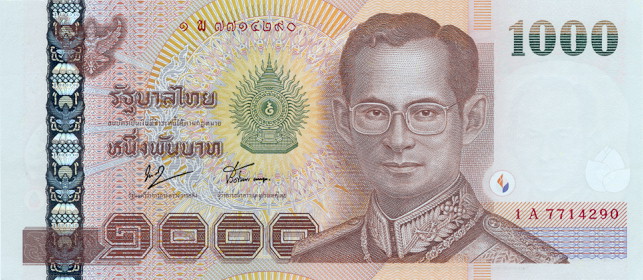Thailand, which used to be one of the world’s most popular tourist destinations, has seen tourism fall by between 15-20 percent in the last year.
The Thai government has been blaming H1N1 or swine flu, but this actually has little to do with it. Thai government decisions, however, have made more and more tourists avoid Thailand and go to other countries in the region.
Until the Thai government decides to make decisions that are tourist-friendly, unfortunately, falling tourism rates are likely to continue and here are a few reasons why.
High ATM Fees When Withdrawing Money From Banks Outside Thailand – Last year, the Thai banking association decided to start charging a 150 baht withdrawal fee for every withdrawal from an ATM machine in Thailand. 150 baht, at present exchange rates, is around $4.50, one of the highest fees in the world for ATM withdrawals.
Add onto it the fees most western banks already charge and, for someone like me, bringing through $500 from the US carries a total fee of over $20. An extremely high fee many people who are tourists are not willing to pay.
Difficulty Getting Visas To Enter and Stay in Thailand – In many other countries in the region, tourists arriving at the airport get an immediate free visa for a 90 day stay.
Thailand only gives a 30 day visa-on-arrival stamp then, if the tourist wants to do a border run to be allowed to stay longer (ie: leave Thailand and come back in again), what used to be unlimited border runs have now been reduced by Thai immigration to just twice a year.
When you can get an immediate 90 day stay in countries like Malaysia and Hong Kong, it is no wonder so many tourists are deciding to go elsewhere, and another important reason why tourism in Thailand is down.
Thailand is Becoming a More Expensive Destination – A few years ago, Thailand used to be a cheap tourist destination. Not anymore.
Three, four and five star hotels in Bangkok have increased in price on average of more than 20% in the last two to three years. Food has gone up 10-15%, transportation costs have risen (buses and taxis are now more expensive) and even buying a beer has gone up by 10-15%.
With Malaysia now being cheaper than Thailand in some respects, many tourists are going there instead.
Thailand’s Human Rights Violations – In the news a few months ago was the Thai military’s decision to arrest several hundred Rohingya refugees, put them back on boats, tow them out into the ocean without adequate food and water and leave them to die.
More than 500 people died, with the Thai military refusing to take responsibility.
Human rights organizations all over the world decried this treatment, as how is it a humane society when refugees fleeing from Burma (Myanmar) in fear of their lives from the repressive Burmese government are then treated just as badly by the Thais?
Westerners Arrested and Jailed for Lese Majeste – Thailand still has a lese majeste law on the books, which means, if anyone says anything the Thai government deems is ‘against the king’, they will be arrested, jailed, tried and usually condemned to several years in prison.
With several high-profile cases involving westerners (a couple of expat residents and even one western tourist), with all of them being given several year jail terms, many westerners have now decided they don’t want to support a country that has this law on the books.
So tourists go elsewhere.
That is why the Thai government can blame H1N1 as much as it wants for tourist visits to Thailand falling, but this is not usually the case.
In fact, with H1N1 in most countries in the world now, Thailand is no more risky than anywhere else.
But, as long as the Thai government continues to make it more difficult for tourists to come here (constantly changing visa laws, high ATM fees, human rights violations, lese majeste laws and more), Thailand is likely to see fewer tourists coming here, and a continuing falling tourism rate.

